Enslavement & Resistance: New England 1620-1760
Fall Programing from the Partnership of Historic Bostons
Hello, friends of Eleven Names! I am writing today to share news of an unprecedented series of programming. Most of these events are virtual and free, making this an inclusive series. To help spread the word, would you forward this email to interested friends, students, educators, and colleagues? Or maybe share it on your social channels? You will have my gratitude.
The first event is one week from today. The following copy is from the Partnership of Historic Bostons -Wayne
Enslavement & Resistance, the Partnership of Historic Bostons’ 2023 lecture series, explores the topic of enslavement in five illuminating presentations. This year, we’re delighted to offer you the chance to hear from leading historians and Tribal representatives who offer remarkable insights and original research. Join us, from the opening lecture on October 18 to the final presentation on December 6, in a joint exploration of this most important of subjects.
Built from Bondage: Slavery and the Colonisation of New England, 1620-1700 with Jared Ross Hardesty
Wednesday, October 18, 2023, 7:00 p.m. | Virtual
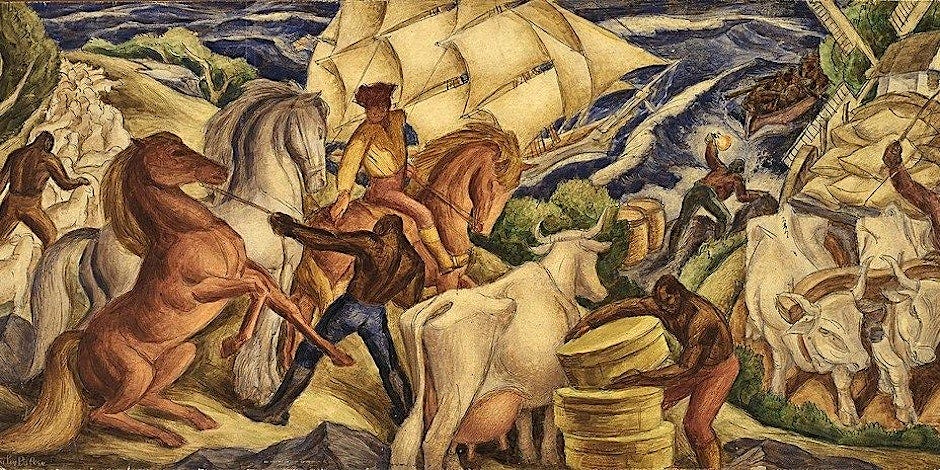
Renowned historian Jared Hardesty launches our six-part series, Enslavement & Resistance: New England 1620-1760, as he explores the importance of slavery in the colonization of New England, with the experiences of enslaved African and Indigenous people at its center.
In tracing the history of New England enslavement, Hardesty mines the rich documentary record of early New England to better understand the lives and experiences of the enslaved people victimized by New England’s peculiar institution. Unique among early modern English-language sources, the records kept by Puritan settlers - court records, probate records, and private letters and diaries - provide unparalleled, if often troubling, access to understanding enslaved people. Such documentation allows the lives of the enslaved to be centered in any account of early slavery. [Read more at the event sign-up page.]
Origin Stories: The Pequot War and Indigenous Enslavement in New England with Margaret Newell, Joshua Carter, and Michael Thomas
Wednesday, November 1, 2023, 6:00 p.m. | Rabb Auditorium, Boston Public Library
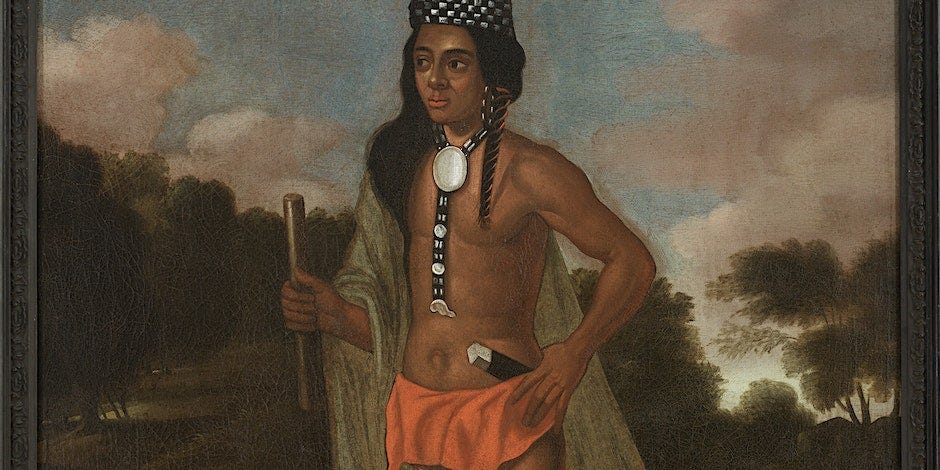
(Note: If you can't attend the Boston Public Library, this event will be livestreamed on Zoom.)
This important talk by award-winning historian Margaret Newell reveals the origins of New England slavery in the Pequot War - a violent conflict from the first years of the Massachusetts colony in which the colonists established slavery for Indigenous and African peoples. Joshua Carter, executive director of the Mashantucket Pequot Museum, and Michael Thomas of the Museum’s Board will add their perspective as members of the Pequot Nation.
The Pequot War fundamentally shaped the law and practice of slavery in New England. Colonial governments distributed Pequot captives to ministers, soldiers, and magistrates. The governor’s “Mansion House” and Cole’s Tavern in Boston housed Pequot slaves, as did many harbor islands. Boston and Salem authorities punished Native runaways, built a slave pen, and used Pequot men and boys as a commodity to enter the lucrative Caribbean trade. Massachusetts Bay’s 1641 legal code, drafted in the wake of the war, included a law of slavery and legalized enslavement of captives. [Read more at the event sign-up page.]
Slavery and Historical Memory: Tour of the Royall House and Slave Quarters with Kyera Singleton
Saturday, November 4, 2023, 10:00 a.m. | Royall House and Slave Quarters | $15
Numbers are limited to 25.
During this program, we will go on a full museum tour and end in the meeting room for a presentation by Kyera Singleton and a Q&A.
The Royall House and Slave Quarters Museum functions as a site of memory. In the 18th century, the plantation was home to the Royalls, the largest slaveholding family in Massachusetts, and at least 60 enslaved women, men, and children whose forced labor helped build the Royall family’s wealth.
As one of the only remaining freestanding quarters where enslaved people lived and worked in the North, the museum bears witness to their lives, to the intertwined stories of wealth and bondage in pre-Revolutionary Massachusetts, and the resistance and political and legal activism of enslaved and free Black people in the 18th century. [Read more at the event sign-up page.]
Stolen Relations: Centuries of Native Enslavement in the Americas with Cheryll Toney Holley, Alexis Moreis, Lorén Spears, and Linford Fisher
Wednesday, November 15, 2023, 6:00 p.m. | Rabb Auditorium, Boston Public Library
The Stolen Relations project at Brown University is a tribal collaborative project that seeks to understand the historic enslavement of Native Americans as part of a longer colonial process. In consultation with regional tribal representatives, the project is building a database of thousands of enslaved Natives to increase public awareness and make this information available to descendent communities. Its purpose, as its website says, is to recover stories of Indigenous enslavement in the Americas - stories long neglected and even forgotten.
This event will feature presentations from some core Stolen Relations team members, including Linford Fisher (project PI and associate professor of history at Brown University), Cheryll Toney Holley (Nipmuc, chief of the Hassanamisco Nipmuc), Alexis Moreis (Wampanoag, conservationist, and tribal historic preservation officer of the Wampanoag Tribe of Chappaquidick), and Lorén Spears (Narragansett, director of the Tomaquag Museum). [Read more at the event sign-up page.]
Enslaved Christians: Black Church Members in the Era of Cotton Mather with Richard Boles
Thursday, November 30, 2023, 7:00 p.m. | Virtual
From the late 17th century through the religious revivals of the mid-18th century, minister-theologians, including Cotton Mather and Jonathan Edwards, wrote about and sought to proselytize enslaved Black and Indigenous people in New England.
Some enslaved people, too, found meaningful reasons for affiliating with these churches. Examining this history helps us move past the myth that New England was relatively unaffected by slavery and blameless for the enslavement of multitudes of people.
This presentation offers the unique insights of Dr. Richard Boles, a scholar who has spent more than a decade researching the religious experiences of African Americans and Native Americans in colonial New England. Boles published his groundbreaking book, Dividing the Faith: The Rise of Segregated Churches in the Early American North in 2020. [Read more at the event sign-up page.]
Race and Slavery at First Church in Roxbury with Aabid Allibhai, Byron Rushing and the Rev. Mary Margaret Earl
Wednesday, December 6, 2023, 7:00 p.m. | Virtual
As Boston reckons with its role in the trans-Atlantic slave trade, much of the recognition of this aspect of the city’s past has focused on historically white neighborhoods and places, from Old South Church in the Back Bay to Faneuil Hall across from Government Center.
But new research by Harvard Ph.D. candidate Aabid Allibhai shows that slavery infiltrated all corners of Boston, including today’s mostly Black neighborhoods such as Roxbury. This final presentation in our series, Enslavement & Resistance: New England, 1620-1760, takes us up to date and asks: how, given these research findings, do we understand Boston's colonial past? What steps should the city take today? Aabid Allibhai is joined by former member of the Massachusetts legislature and lifelong activist Byron Rushing and the Rev. Mary Margaret Earl. [Read more at the event sign-up page.]




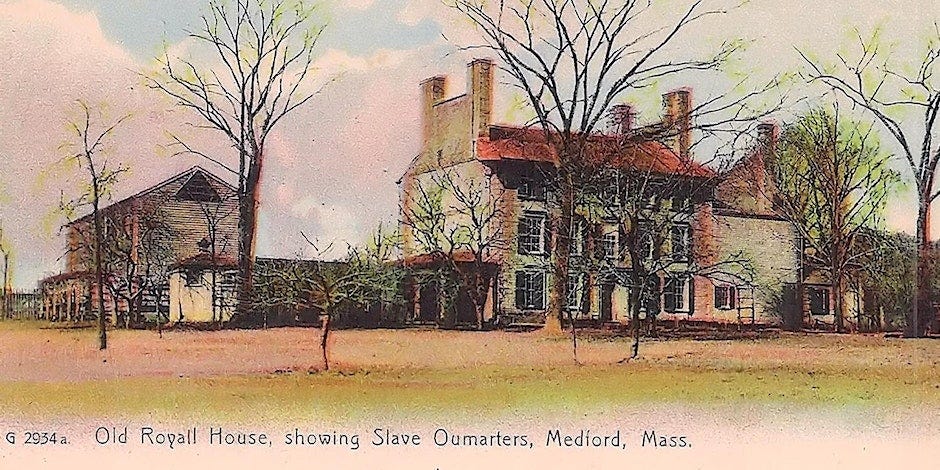
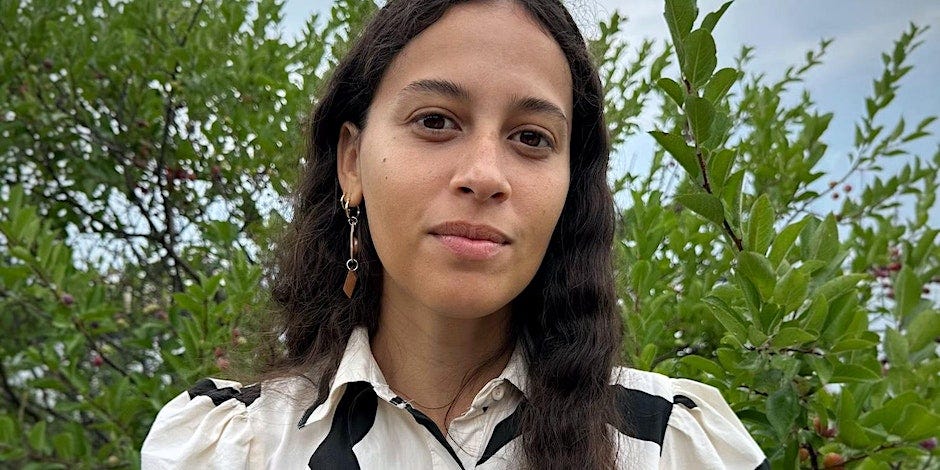
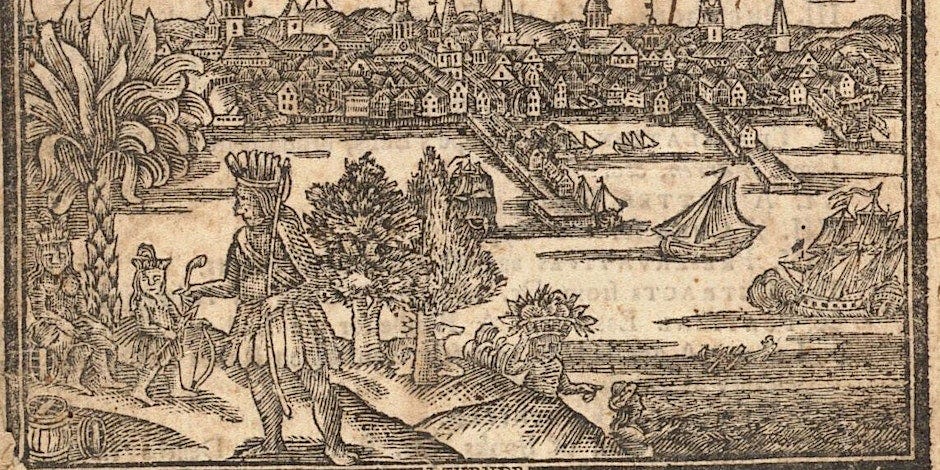

Thanks for posting all these great local history events! Putting them on my calendar...
Sadly history, however we all need to know it